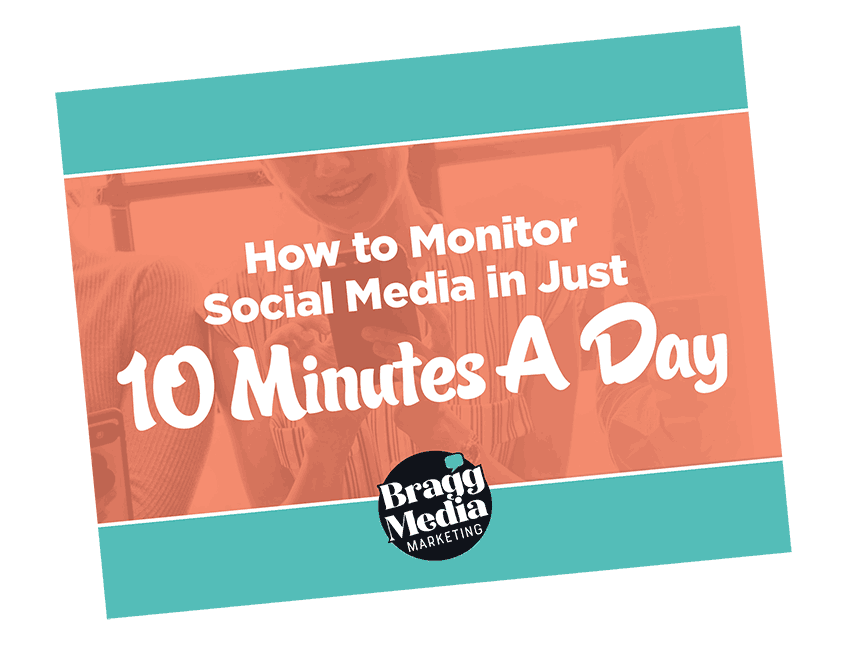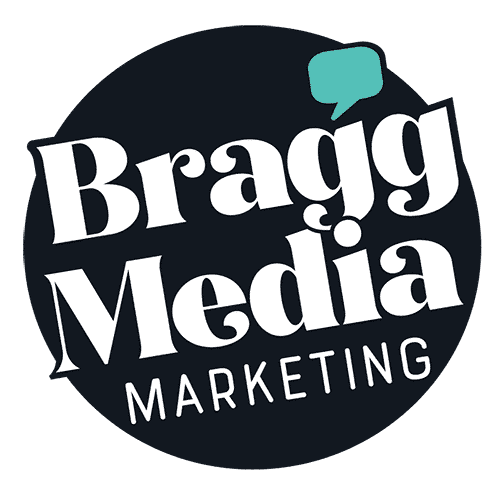
Law firms share the same marketing challenges many businesses face: a high volume of competition and inundation of people who want their valuable advice for free.
However, there is another factor that affects law firms more than any other industry: trust. Only 18% of Americans find lawyers to be honest and ethical, according to Statista. There are only two professions below lawyers on this trust scale — business executives and lobbyists.
Trust is as important to marketing as bread is to a peanut butter and jelly sandwich. Without trust, marketing won’t work because your audience won’t listen.
Inbound marketing helps repair broken trust and build credibility by focusing on a positive customer experience. This is primarily accomplished through a well-strategized content marketing plan that aligns with your business goals, your audience and your budget.
Free Ebook!

Stay connected and engaged with your audience by learning how to optimize social media monitoring and responses!
Get social with us!
Need a logo? Time to freshen your logo up?
Our Brand Starter Kit includes a non-Trademarked logo with up to 9 more projects.
What is inbound marketing and does it really work?
Inbound marketing attracts customers to law firms as opposed to fighting for their attention. This typically requires targeting a large group of people through holistic marketing on multiple channels. Here is an example:
- promoting quality blog content on various social media platforms
- sending emails to a pre-qualified segmented group of contacts
- offering valuable ebooks on website landing pages
- redesigning websites with a better user experience
- sending press releases to local community news media
- implementing marketing automation that send pre-crafted emails follow-ups to leads, create tasks and reminders to staff, book appointments, etc.
If this sounds like a spaghetti test — throwing marketing ideas around to see what will stick — think again. Inbound marketing does not work without a data-driven plan. This requires studying analytics, testing marketing methods, analyzing the results and tweaking marketing for results.
Does this work?
Content marketing produces three times more leads than advertising, and it’s 61% cheaper than outbound marketing methods (paid advertising). Content that focuses on your audience’s pain points and desires increases the volume of Sales Qualified Leads (SQLs) by 45%. Businesses that nurture leads make 50% more sales at a cost that’s 33% less than leads that aren’t nurtured.
Also consider the trends in buyer behavior:
- Only 29% of people want to talk to a salesperson to learn more about a product, while 62% will consult a search engine
- 90% of searchers haven’t made their minds up about a brand before starting their search
- 47% of buyers view at least 3 to 5 pieces of content before deciding to speak with a sales rep
 Website Design
Website Design
Affordable website design with a process that works for you.
How does inbound marketing work for law firms and attorneys?
Many lawyers are concerned that quality content means giving away free legal advice. The point is to provide enough helpful content to lure leads to your website and to engage them with helpful information about the law firm’s practice areas.
Today’s skeptic audience doesn’t respond to in-your-face sales messages like they did in the past, because they are savvy and they already know what they want. This means the impetus for effective law firm marketing is building a positive reputation so that when a legal problem arises, your law firm is first of mind.
A great place to start? Solid search engine optimization (SEO) combined with useful content that answers questions.
When users seek out information on legal matters, they are looking for a trusted source of information to ease their minds or to help them understand what their next steps should be. This process allows your law firm to look like the hero, a trusted expert and someone with whom they should do business.
Once this happens, inbound marketing becomes instrumental into turning potential customers into prospects, and then turning prospects into paying customers. In the end, your customers will become your best brand storytellers — by referring other potential clients to your law firm.
How can inbound marketing target the right people for your law firm?
First, determine the ideal customer profile. What are their pain points? How is your law firm a solution for those pain points? Where can you find your audience online and offline?
Next, develop the most appropriate content. Whether it’s a blog post, ebook, social media campaign or e-newsletter, the topic and call to action should meet your audience where they’re at in the buying process. In other words, content should be developed specifically for those who are in different stages of the buying lifecycle: new leads, qualified leads or customers.
A great way to immediately inject quality content is with evergreen web pages about your practice areas, such as estate planning and probate, living trusts, family law, real estate closings, personal injury, etc. Often referred to as cornerstone content or pillar content, these website pages boost search engine rankings, educate your audience on why this issue is important and explain why your audience should choose your law firm over others.
Before a law firm interacts with its target audience, it’s important to have a system in place to determine where they’re at in the buying process. Otherwise, the content may be directed toward the wrong segment, and when you reach a prospect, the content is irrelevant.
Cue marketing automation. Imagine a potential client visits your estate planning page, fills out a form to receive an ebook on “How to prepare for estate planning.” A few days later, the same user is back on the site, this time reads another page and two blogs on a similar topic. This action triggers an email with an inquiry to see if the user is interested in making an appointment.
 Marketing Retainers
Marketing Retainers
Branding, creative, digital and strategy with results.
All of this is done behind the scenes with an all-in-one marketing platform that manages:
- Customer relationship management (CRM)
- Social media post scheduling and monitoring (no more going to individual outlets to respond to followers)
- Email marketing
- Social media advertising
- Pay per click search advertising
- Blog posts
- Landing pages
- Online Forms
- Calls to action (buttons)
- Analytics for website traffic, lead conversion, email activity, ad buys and more
This is a lot of work, right? Of course it is! Anything worthwhile — especially trust — takes work. Truly effective inbound marketing should give you more than a return on your investment. It should increase your revenue and become a valuable function of your business. This is not something that can be done without planning and an experienced professional to set the systems in place.
